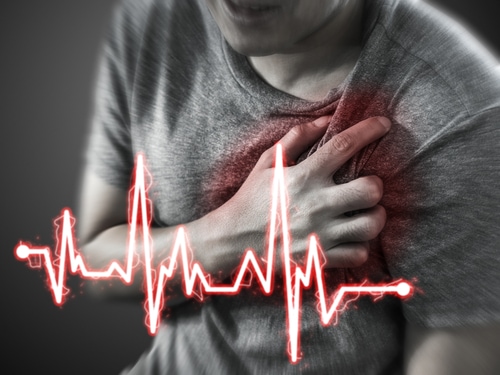By: Design for Change Recovery
Categories:
Can Cocaine Cause a Heart Attack?
You are here:The American Heart Association calls cocaine “the perfect heart-attack drug.” Cocaine, in addition to other drugs, affects the central nervous system. Injecting it can lead to cardiovascular problems like collapsed veins and bacterial infections of heart valves. Other cardiovascular effects are possible, from abnormal heart rate to heart attacks.
Cocaine usually comes in powder form. It is often snorted or dissolved in water and injected. Another type of cocaine, crack, is processed to make a crystal rock that can be smoked.
In addition to the risk of addiction, here are some other risk associated with cocaine use:
- changes in body temperature, heart rate, and blood pressure
- headaches, abdominal pain, and nausea
- impaired judgment and greater risk of some sexually transmitted infections
- possibility of added substances (such as talc, poisons, herbicides or other particles) which may cause a toxic reaction.
- heart attacks, seizures, and respiratory arrest
Studies have shown that cocaine users may have higher blood pressure, thicker heart muscle walls, and stiffer arteries. This is true even for “recreational” cocaine users. These effects have been demonstrated to be true even after cocaine has worn off.
Even when there is no heart attack, cocaine affects the heart negatively. It increases blood pressure and causes narrowing of the blood vessels throughout the body. This combination of increased blood pressure, increased heart rate, and narrowed arteries can lead to heart attacks. Cocaine also forces your heart to pump harder by stimulating your alpha and beta receptors.
Cocaine users may experience cardiomyopathy, disease of the heart muscle. It causes angina, chest pain. It can also lead to abnormal heart rhythms, also known as ventricular tachycardia or ventricular fibrillation. Another risk is endocarditis, or heart inflammation.
Heart pains and palpitations lead the cause of cocaine related emergency room visits. These visits take a toll on resources.
Those most at risk of heart related problems with cocaine are:
- First-time users
- Older users with coronary arteries that are clogged or abnormal
- Pregnant women
- Those who smoke crack cocaine
If you or someone you love is doing cocaine, being aware of the risks if a valuable first step. If awareness of the risks doesn’t hinder your desire to use, you may have developed an addiction. If you or someone you love can’t stop using cocaine, help is available. There are treatment counselors available to speak with you. Help is available. Call now.
One step at a time, one day at a time, you can recover. At Design For Change, we offer refuge to those seeking to win against addiction because there is freedom in recovery. There is hope. Call us today to learn more about our long-term treatment programs and recovery services creating change, one step at a time. (877) 267-3646


